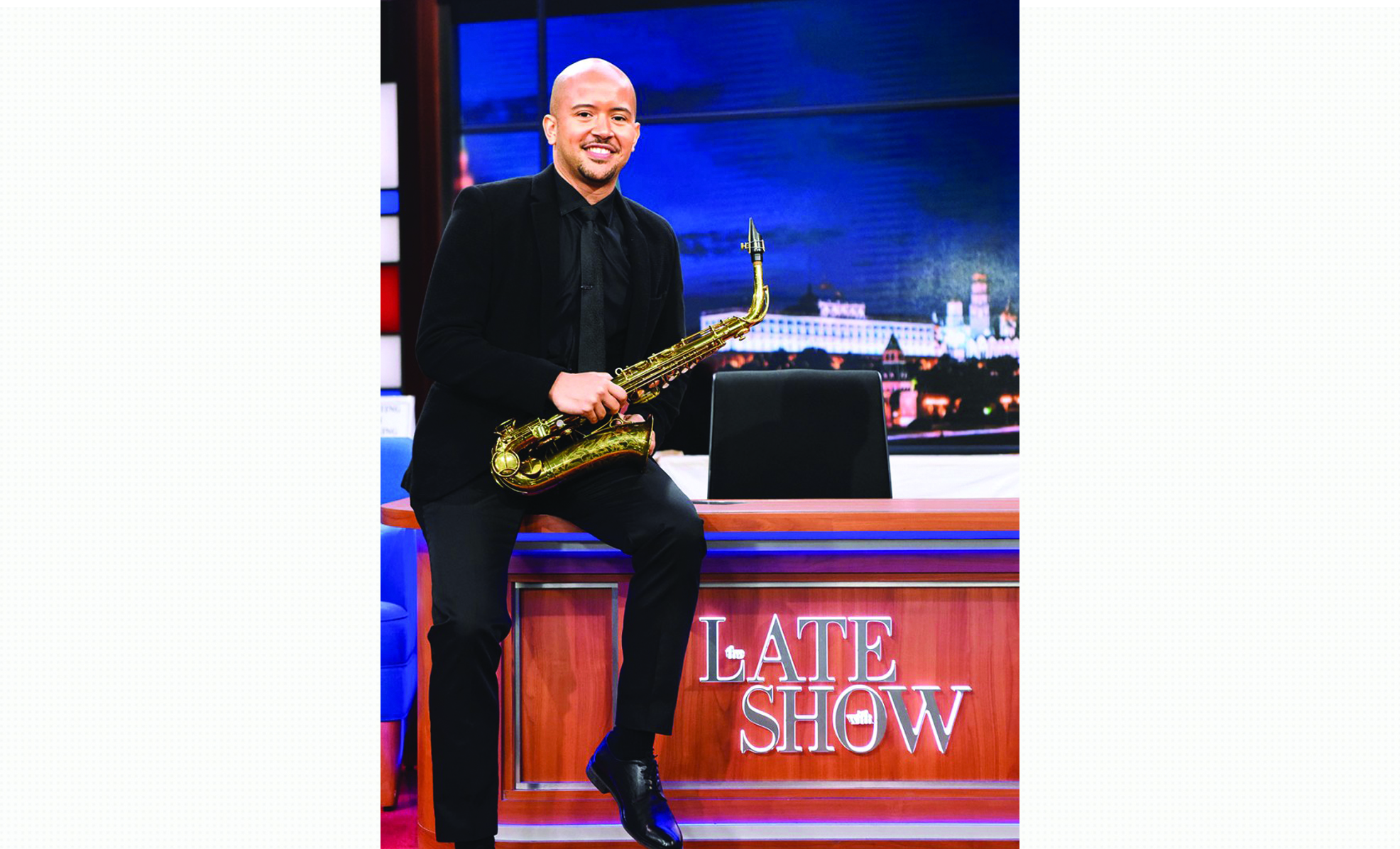Late Show Saxophonist Studied Physics, Chemical Engineering
-
-
MIT Technology Review
Recommended

At first glance, Louis Fouché’s professional career couldn’t be more different from his MIT coursework in physics and chemical engineering. Fouché plays saxophone for the house band of The Late Show with Stephen Colbert, and his solo album reached number one in jazz on Amazon. But he believes the factors that helped him excel in math and science also helped propel his career in music.
“You flex your creative and analytical muscles in both,” he says. “Science has artistic elements, and there are scientific elements to art and music.”
Fouché developed his passions for both science and music as a child in northeastern Pennsylvania, thanks in part to some objects left over from his father’s childhood.
“My father had a book of simple experiments from the 1950s that I loved,” he says. “And when I was 12 years old, I became fascinated with my dad’s old saxophone, and I decided to get serious about playing music.”
Fouché’s love of music was buoyed by summers in New Orleans, where he stayed with his grandparents and attended the Louis “Satchmo” Armstrong Summer Jazz Camp. He befriended a number of musicians at the camp, including Jon Batiste, now the band leader for Stay Human, The Late Show’s house band.
I’m thankful for MIT. My mind works differently than it would had I gone anywhere else.
I was fortunate to learn in a mecca of music—jazz, blues, and all kinds of black American music,” he says.
Fouché returned to New Orleans after his junior year in high school when he enrolled at Xavier University of Louisiana. “It was a unique arrangement where, if my grades were satisfactory at Xavier, I’d receive my high school diploma,” he says.
Around this time, Fouché also participated in MIT’s Minority Introduction to Engineering and Science (MITES) summer program. “That program changed my life,” he says. “I realized I could be successful at a place like MIT.”
Fouché enrolled at MIT after a year at Xavier, and he balanced his studies by playing professionally around Boston. In the years following graduation, he performed in 20 countries, toured with trumpeter Christian Scott aTunde Adjuah, and joined the band of 10-time Grammy winner Eddie Palmieri.
Inspired by MITES, he returned to MIT in 2011 and helped found the MIT Online Science, Technology, and Engineering Community program for underrepresented high school seniors. While working at MIT, he released his jazz album, Subjective Mind, in 2012.
Fouché, who joined The Late Show in 2017, credits MIT with helping push him toward success.
“Working at the show is electrifying—it’s amazing to watch the mastery of Stephen Colbert,” Fouché says. “And I’m thankful for MIT. My mind works differently than it would had I gone anywhere else.”
This article originally appeared in the November/December 2017 issue of MIT Technology Review magazine.
Photo credit: Scott Kowalchyk/CBS







